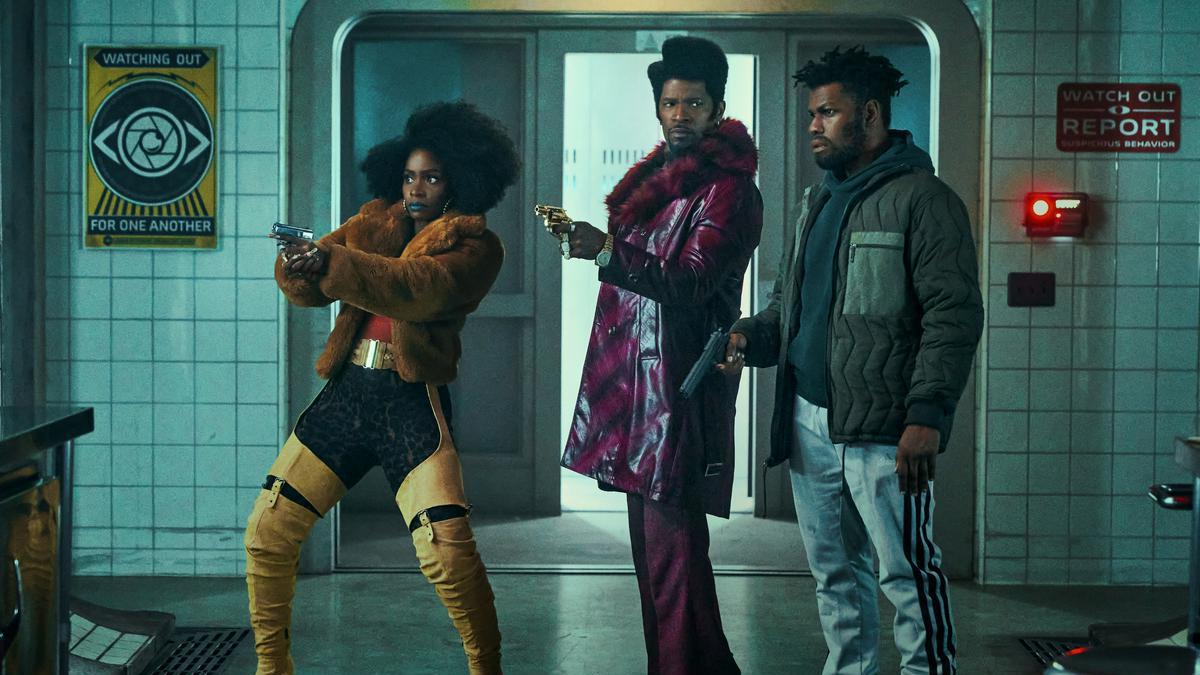Toward the end of his 2023 HBO comedy special From Bleak to Dark, Marc Maron tells the audience a high-wire joke he’s been working on since his partner, the director Lynn Shelton, died in 2020 from a rare blood disease.
It starts with Maron on the way to the hospital to say goodbye to Shelton after a doctor arranges for the comedian to see her body. When Maron gets there, he takes his time saying goodbye. As he’s walking out of the ICU, he stops to consider a thought: “Selfie?” he asks himself. “No,” he finally decides. Most of the audience laughs immediately, but a few gasp before succumbing to their chuckles. It’s the kind of blunt and slightly scandalous humor Maron has built his career on, but it’s also textured with something rare for the comedian: a tender emotional awareness.
Are We Good?
The Bottom Line
A scrappy portrait of grief.
Venue: SXSW Film Festival (Documentary Spotlight)
Director: Steven Feinartz
1 hour 35 minutes
There are scenes of Maron workshopping this joke in Are We Good?, a new documentary about the comedian that premiered at SXSW. The film, directed by Steven Feinartz, chronicles the years in Maron’s life succeeding Shelton’s death. It follows the comedian as he returns to stand-up and uses his craft to navigate this painful experience. Unlike most recent celebrity docs, Are We Good, which is still seeking distribution, is a little more than a hagiographic tribute. It’s an introspective portrait of how grief forces Maron, who spent a career metabolizing his feelings into cantankerous jokes, to finally confront his emotions.
While anyone navigating loss can identify with parts of the comedian’s journey, Are We Good? seems best suited for those familiar with Maron. The film complements the HBO special, offering a kind of behind-the-scenes look at the efforts that brought Maron in front of that audience at New York City’s Town Hall.
Feinartz, who also directed From Bleak to Dark, takes an unfussy approach to shaping Are We Good?. He uses home videos, recent footage of Maron living his life or testing new routines, as well as interviews with friends and colleagues like John Mulaney and Michaela Watkins, to tell the comedian’s story. The director occasionally indulges in some aesthetic flourishes — animation by Michael Lloyd, for example — but he mostly sticks to a spare style. This approach gives the doc a scrappiness that not only reflects Maron’s disposition, but also captures grief’s wayward turns.
The doc opens with a brief overview of Shelton’s relationship to Maron and her unexpected death. Feinartz relies on the comedian’s own telling of the romance, but he also pulls in clips from Maron’s show. They encountered each other in the 2010s and Maron invited the director onto his show, WTF With Marc Maron, in 2015. Excerpts from that episode capture the beginnings of their friendship. Shelton was married at the time and Maron was in another relationship, but the two artists stayed in touch. Shelton directed a couple of Maron’s specials as well as episodes of GLOW. She even cast Maron in her 2019 comedy Sword of Trust, which premiered at Sundance. When they finally got together, their relationship seemed as much an intellectual match as a romantic one.
“I was better in Lynn Shelton’s gaze,” Maron says at one point in Are We Good? Her death broke his heart and upended his world. Not only did the comedian lose his best friend, but he also couldn’t grieve her with his community. Shelton passed during the early days of the COVID lockdown. Maron frequently jokes about feeling like an exhibition when his neighbors, making an effort he appreciated, tried to comfort him from six feet away.
It’s no wonder Maron made use of Instagram Live. The comic started using the app’s feature while Shelton was alive (you can hear and see her in the background of some videos), but her death changed his approach. The livestreams, many of which Feinartz includes in the doc, became a way for Maron to connect with others and process his feelings.
In fact, Maron used almost everything in his life to confront this loss. The Instagram videos, his stand-up routines once he got back on stage, his podcast and even his relationship with his two cats all became avenues through which the comedian processed grief. The experience, though a universal one, felt singular and overwhelming, and Maron needed to talk about it. At first the conversations and jokes were a bit stilted — awkward even — but he eventually got more comfortable, loosening up and letting the emotions wash over him like a wave.
Are We Good? traces the evolution of Maron as a person and artist trying to make space for loss in his life. The process unearths other repressed emotions, especially about his early years. Feinartz uses Maron’s biography — the emotionally absent father, the youthful years in Albuquerque, his early interest in comedy and his substance abuse — as a lens through which to understand his present pain. This framing lets Feinartz cover most of Maron’s life and early career, but it’s by no means comprehensive.
As with many of us, Maron’s emotional issues can be traced back to childhood. The comedian talks a lot about his dad’s emotional inaccessibility. In one telling anecdote, Maron remembers how he was often tasked by his mother with telling a joke whenever his father was in a mood. “You’re the only one who can make him laugh,” she would say.
When Barry Maron appears in the doc, Maron reveals that his father has dementia. The condition complicates their relationship as Maron spends more time with a person he hasn’t really forgiven. The senior Maron is also more to the political right than his son, and sometimes the junior Maron references his father’s conspiratorial thinking. Here’s where I wish Feinartz had dug a bit deeper. It seems like Maron’s relationship with his father, changing so much in the face of the latter’s disease, has added another layer to his grief. But the doc doesn’t dwell. Instead, Feinartz splits his attention between this painful thread and one concerning Maron’s career ambitions.
When HBO taps the comedian for a special, it boosts Maron’s confidence. His excitement is palpable. He’s been a working comic for decades and hasn’t always felt as recognized as his peers. The special makes him feel like he’s arrived, and it becomes a place where his emotional and artistic lives meet honestly.





































